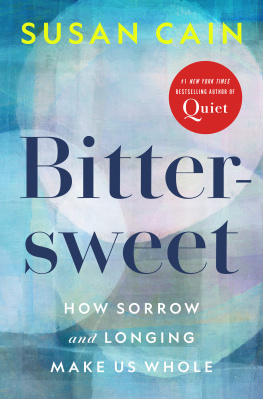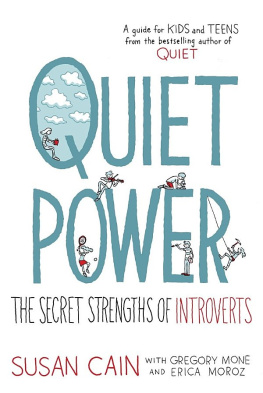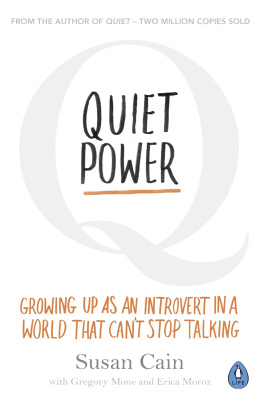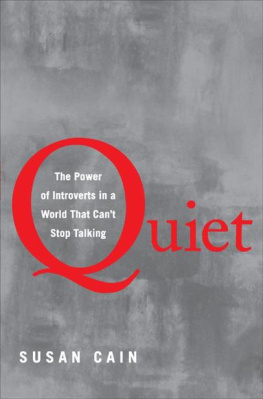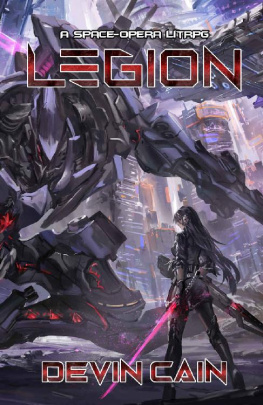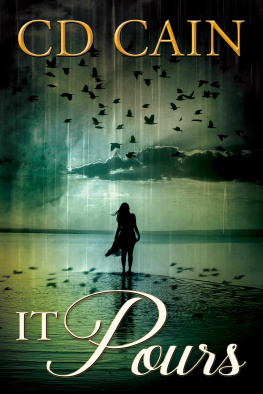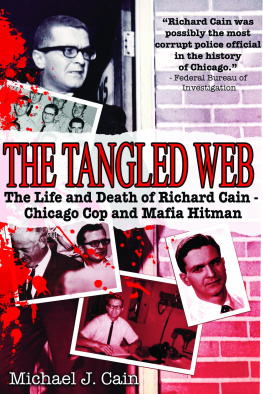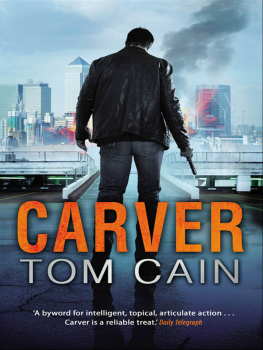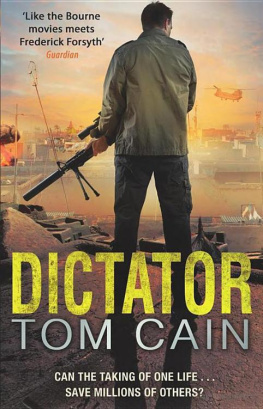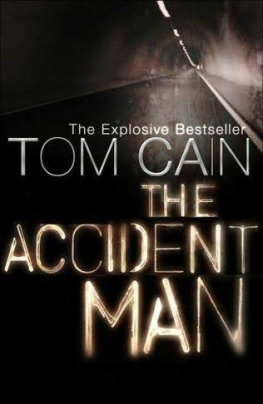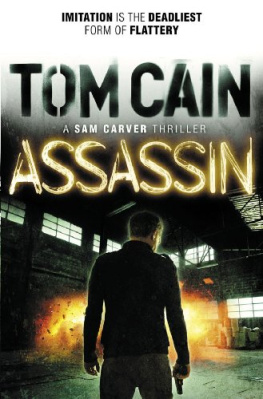Susan Cain - Bittersweet : How Sorrow and Longing Make Us Whole
Here you can read online Susan Cain - Bittersweet : How Sorrow and Longing Make Us Whole full text of the book (entire story) in english for free. Download pdf and epub, get meaning, cover and reviews about this ebook. year: 2022, publisher: Crown, genre: Home and family. Description of the work, (preface) as well as reviews are available. Best literature library LitArk.com created for fans of good reading and offers a wide selection of genres:
Romance novel
Science fiction
Adventure
Detective
Science
History
Home and family
Prose
Art
Politics
Computer
Non-fiction
Religion
Business
Children
Humor
Choose a favorite category and find really read worthwhile books. Enjoy immersion in the world of imagination, feel the emotions of the characters or learn something new for yourself, make an fascinating discovery.
- Book:Bittersweet : How Sorrow and Longing Make Us Whole
- Author:
- Publisher:Crown
- Genre:
- Year:2022
- Rating:4 / 5
- Favourites:Add to favourites
- Your mark:
- 80
- 1
- 2
- 3
- 4
- 5
Bittersweet : How Sorrow and Longing Make Us Whole: summary, description and annotation
We offer to read an annotation, description, summary or preface (depends on what the author of the book "Bittersweet : How Sorrow and Longing Make Us Whole" wrote himself). If you haven't found the necessary information about the book — write in the comments, we will try to find it.
Susan Cain: author's other books
Who wrote Bittersweet : How Sorrow and Longing Make Us Whole? Find out the surname, the name of the author of the book and a list of all author's works by series.
Bittersweet : How Sorrow and Longing Make Us Whole — read online for free the complete book (whole text) full work
Below is the text of the book, divided by pages. System saving the place of the last page read, allows you to conveniently read the book "Bittersweet : How Sorrow and Longing Make Us Whole" online for free, without having to search again every time where you left off. Put a bookmark, and you can go to the page where you finished reading at any time.
Font size:
Interval:
Bookmark:
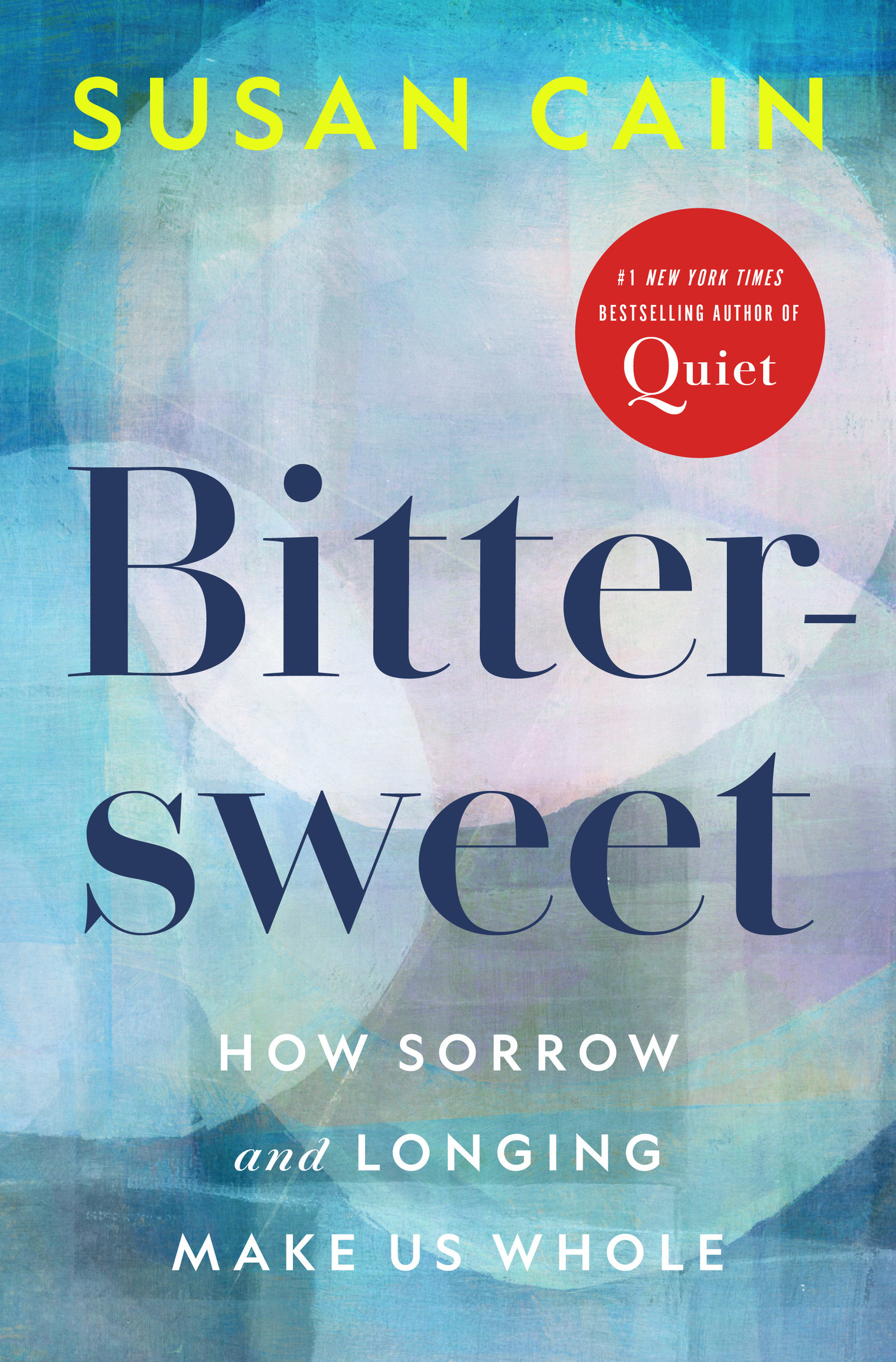
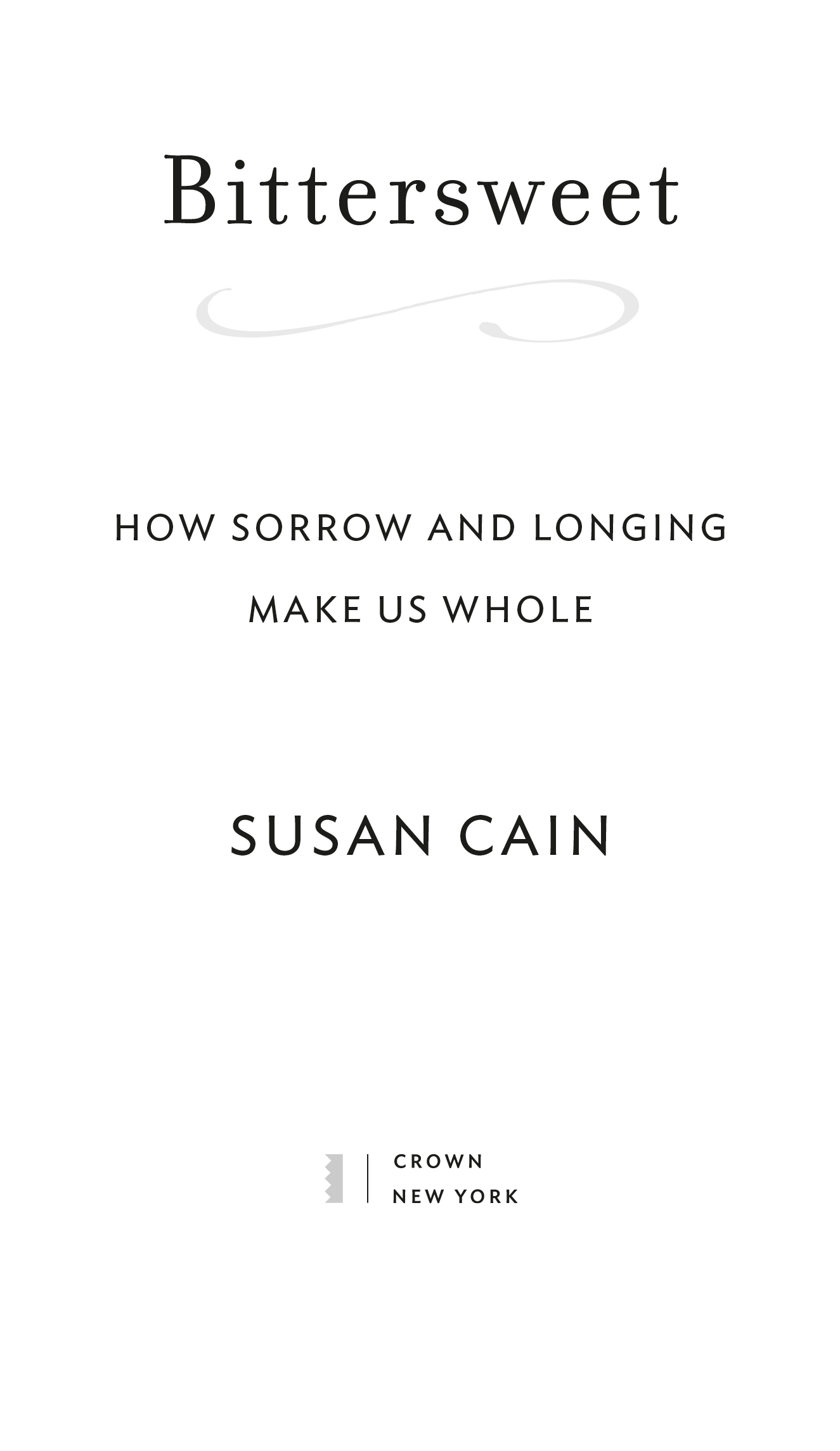
Copyright 2022 by Susan Cain
All rights reserved.
Published in the United States by Crown, an imprint of Random House, a division of Penguin Random House LLC, New York.
C rown and the Crown colophon are registered trademarks of Penguin Random House LLC.
Library of Congress Cataloging-in-Publication Data
Names: Cain, Susan, author.
Title: Bittersweet: how sorrow and longing make us whole / by Susan Cain.
Description: New York: Crown, [2022] | Includes bibliographical references and index.
Identifiers: LCCN 2021053380 (print) | LCCN 2021053381 (ebook) | ISBN 9780451499783 (hardcover) | ISBN 9780451499806 (ebook)
Subjects: LCSH: Grief. | Desire.
Classification: LCC BF575.G7 C274 2022 (print) | LCC BF575.G7 (ebook) | DDC 155.2dc23/eng/20211227
LC record available at https://lccn.loc.gov/2021053380
LC ebook record available at https://lccn.loc.gov/2021053381
International edition ISBN9780593443392
Ebook ISBN9780451499806
crownpublishing.com
Frontispiece images (clockwise from top): Sarajevo Requiem by Tom Stoddart, Getty Images; photographer unknown; January Day: Lower Manhattan, Thomas Schaller (thomaswschaller.com)
Book design by Dana Leigh Blanchette, adapted for ebook
Cover design: Evan Gaffney
Art direction: Jackie Phillips
Cover art: Qweek/ Getty Images
ep_prh_6.0_139749446_c0_r1
Gregory the Great (ca. 540604) spoke about compunctio, the holy pain[,] the grief somebody feels when faced with that which is most beautiful.The bittersweet experience stems from human homelessness in an imperfect world, human consciousness of, and at the same time, a desire for, perfection. This inner spiritual void becomes painfully real when faced with beauty. There, between the lost and the desired, the holy tears are formed.
OWE WIKSTRM, PROFESSOR IN PSYCHOLOGY OF
RELIGION AT THE UNIVERSITY OF UPPSALA
Ive been working on this book officially since 2016, and unofficially (as youll soon read) for my whole life. Ive spoken to, read, and corresponded with hundreds of people about all things Bittersweet. Some of these people I mention explicitly; others informed my thinking. I would have loved to name them all, but this would have produced an unreadable book. So, some names appear only in the Notes and Acknowledgments; others, no doubt, Ive left out by mistake. Im grateful for them all.
Also, for readability, I didnt use ellipses or brackets in certain quotations, but made sure that the extra or missing words didnt change the speakers or writers meaning. If youd like to quote these written sources from the original, the citations directing you to most of the full quotations appear in the Notes at the back of the book.
Finally, Ive changed the names and identifying details of some of the people whose stories I tell. I didnt fact-check the stories people told me about themselves, but included only those I believed to be true.
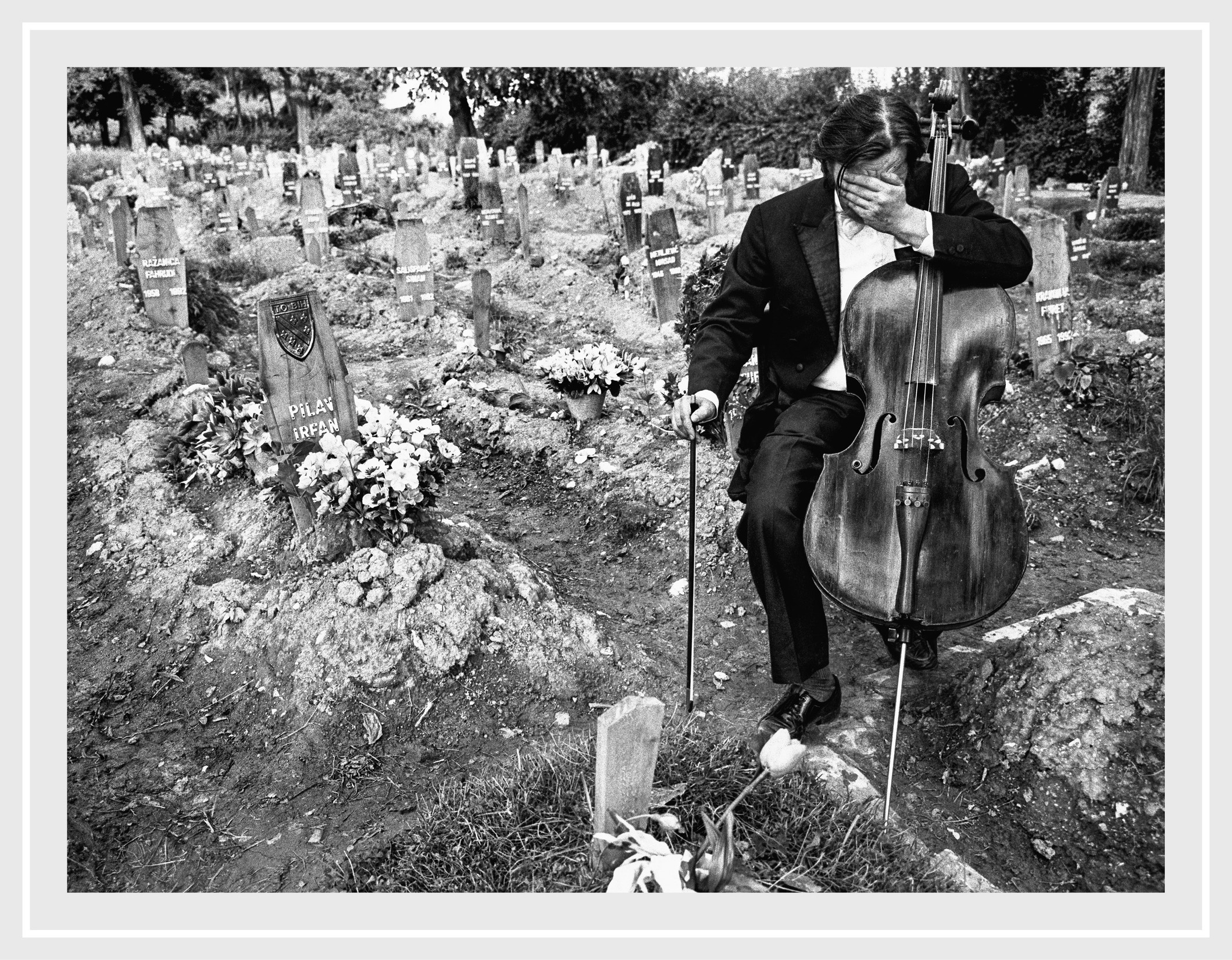
Sarajevo Requiem by Tom Stoddart, Getty Images
One night, I dreamed that I was meeting my friend, a poet named Mariana, in Sarajevo, the city of love. I woke up confused. Sarajevo, a symbol of love? Wasnt Sarajevo the site of one of the bloodiest civil wars of the late twentieth century?
Then I remembered.
Vedran Smailovi.
The cellist of Sarajevo.
Its May 28, 1992, and Sarajevo is under siege. For centuries, Muslims, Croats, and Serbs have lived together in this city of streetcars and pastry shops, gliding swans in parkland ponds, Ottoman mosques and Eastern Orthodox cathedrals. A city of three religions, three peoples, yet until recently no one paid too much attention to who was who. They knew but they didnt know; they preferred to see one another as neighbors who met for coffee or kebabs, took classes at the same university, sometimes got married, had children.
But now, civil war. Men on the hills flanking the city have cut the electricity and water supply. The 1984 Olympic stadium has burned down, its playing fields turned into makeshift graveyards. The apartment buildings are pockmarked from mortar assaults, the traffic lights are broken, the streets are quiet. The only sound is the crackling of gunfire.
Until this moment, when the strains of Albinonis Adagio in G Minor fill the pedestrian street outside a bombed-out bakery.
Do you know this music? If not, maybe you should pause and listen to it right now: youtube.com/watch?v=kn1gcjuhlhg. Its haunting, its exquisite, its infinitely sad. Vedran Smailovi, lead cellist of the Sarajevo opera orchestra, is playing it in honor of twenty-two people killed yesterday by a mortar shell as they lined up for bread. Smailovi was nearby when the shell exploded; he helped take care of the wounded. Now hes returned to the scene of the carnage, dressed as if for a night at the opera house, in a formal white shirt and black tails. He sits amidst the rubble, on a white plastic chair, his cello propped between his legs. The yearning notes of the adagio float up to the sky.
All around him, the rifles fire, the shelling booms, the machine guns crackle. Smailovi keeps on playing. Hell do this for twenty-two days, one day for each person killed at the bakery. Somehow, the bullets will never touch him.
This is a city built in a valley, ringed by mountains from which snipers aim at starving citizens in search of bread. Some people wait for hours to cross the street, then dart across like hunted deer. But heres a man sitting still in an open square, dressed in concert finery, as if he has all the time in the world.
You ask me am I crazy for playing the cello in a war zone, he says. Why dont you ask THEM if theyre crazy for shelling Sarajevo?
His gesture reverberates throughout the city, over the airwaves. Soon, itll find expression in a novel, a film. But before that, during the darkest days of the siege, Smailovi will inspire other musicians to take to the streets with their own instruments. They dont play martial music, to rouse the troops against the snipers, or pop tunes, to lift the peoples spirits. They play the Albinoni. The destroyers attack with guns and bombs, and the musicians respond with the most bittersweet music they know.
Were not combatants, call the violinists; were not victims, either, add the violas. Were just humans, sing the cellos, just humans: flawed and beautiful and aching for love.
A few months later. The civil war rages on, and the foreign correspondent Allan Little watches as a procession of forty thousand civilians emerges from a forest. Theyve been trudging through the woods for forty-eight hours straight, fleeing an attack.
Among them is an eighty-year-old man. He looks desperate, exhausted. The man approaches Little, asks whether hes seen his wife. They were separated during the long march, the man says.
Little hasnt seen her but, ever the journalist, asks whether the man wouldnt mind identifying himself as Muslim or Croat. And the mans answer, Little says years later, in a gorgeous BBC segment, shames him even now, as he recalls it across the decades.
Font size:
Interval:
Bookmark:
Similar books «Bittersweet : How Sorrow and Longing Make Us Whole»
Look at similar books to Bittersweet : How Sorrow and Longing Make Us Whole. We have selected literature similar in name and meaning in the hope of providing readers with more options to find new, interesting, not yet read works.
Discussion, reviews of the book Bittersweet : How Sorrow and Longing Make Us Whole and just readers' own opinions. Leave your comments, write what you think about the work, its meaning or the main characters. Specify what exactly you liked and what you didn't like, and why you think so.

